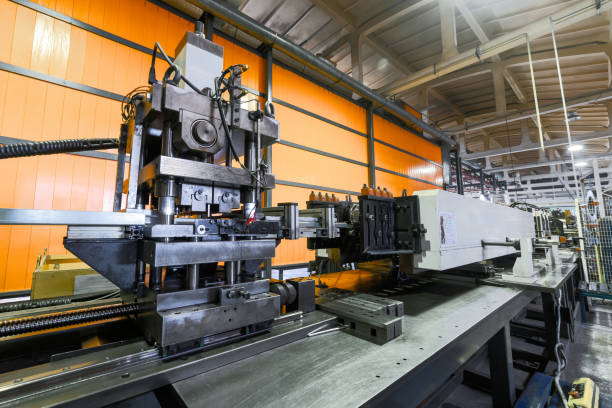Manufacturing Jobs: Careers in Factory and Industry in the Netherlands
The manufacturing sector offers a wide range of occupations, from hands-on factory roles to technical and supervisory positions. This article describes common manufacturing job types, career pathways, and how the Netherlands fits into the industry picture. It provides general guidance on skills and training; it does not list specific job openings or guarantee current hiring availability — readers should treat this as career information rather than live vacancies.

Manufacturing roles and typical duties
Manufacturing roles vary widely depending on the product and production method. Common positions include machine operators, assemblers, quality control inspectors, maintenance technicians, and production planners. Duties can range from setting up and running equipment to monitoring output and performing routine maintenance. Many roles follow standardized safety and quality procedures, and documentation is often part of daily work. Shift patterns differ by plant, and some positions require certifications for specific equipment or processes such as welding, CNC operation, or electrical testing.
Career pathways and required skills
A manufacturing career can begin with entry-level shop-floor roles and progress to specialist, supervisory, or engineering positions. Core skills employers seek are mechanical aptitude, attention to detail, basic digital literacy, and problem-solving. Technical training—such as vocational diplomas, apprenticeships, or on-the-job certification—helps with progression. Soft skills like teamwork, communication, and reliability are also important. For mid-career moves, employers often value task-specific credentials, continuous upskilling, and experience with quality systems like ISO or lean manufacturing practices.
Working in the Netherlands manufacturing sector
The Netherlands hosts diverse manufacturing sub-sectors including food processing, high-tech systems, chemicals, and machinery. Locations range from large industrial parks to smaller factories in regional towns. Employment conditions are governed by national labor law and collective labor agreements in some sectors; language expectations vary by role and employer, with many technical workplaces using English alongside Dutch. Labour market conditions and hiring demand change over time, so this overview is general and should not be taken as a listing of available positions. Local services such as training centers can help with language and vocational support.
Factory floor roles, shifts, and safety
Factory roles often require adherence to safety protocols, correct use of personal protective equipment, and familiarity with standard operating procedures. Shift work is common in continuous-production environments; day, evening, and night shifts may be scheduled on rotation. Employers generally provide safety training and may require periodic refreshers. Roles like maintenance technician or process operator can involve reactive troubleshooting and preventative maintenance. Prospective candidates should ask about shift patterns, break arrangements, and safety certifications during recruitment processes, and verify that conditions meet local employment standards.
Industry trends and digital skills
The industry is increasingly adopting automation, data-driven process control, and Industry 4.0 technologies. Familiarity with basic data interpretation, sensors, PLCs (programmable logic controllers), and human-machine interfaces can be an advantage. Continuous improvement methodologies—such as lean, Six Sigma, or Kaizen—remain relevant, particularly in plants focused on efficiency and quality. While automation shifts the nature of some tasks, new roles emerge around equipment maintenance, systems integration, and process optimization. Training programs and short courses can help workers transition to technology-focused roles within manufacturing.
Training, certifications, and local services
Training options include vocational schools, apprenticeships, short technical courses, and employer-provided programs. Common certifications cover welding, forklift operation, electrical safety, and machine-specific qualifications. Local services—such as vocational centers, career counseling, and regional employment agencies—can help match skills to industry needs and provide information about available training subsidies. For those relocating or seeking work in the Netherlands, language classes and integration supports may be available. This section provides general guidance; specific program availability and entry requirements vary by provider and region.
Conclusion
Manufacturing jobs encompass a broad range of tasks and career paths, from entry-level factory roles to technical and supervisory positions. Success in this sector typically combines technical skills, safety awareness, and adaptability to evolving technologies. Information here is intended as general career guidance, not as an assurance of current vacancies or hiring timelines. Prospective applicants should consult local services, employers, and official labor resources for up-to-date information about training, certification, and openings in their area.






